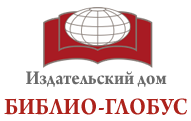Кадиров Никита Тимурович – бакалавр менеджмента (Дальневосточный федеральный университет, г. Владивосток, о-в Русский)
Филиппов Виталий Валерьевич – бакалавр менеджмента (Дальневосточный федеральный университет, г. Владивосток, о-в Русский)
В данном литературном обзоре мы показываем, что развитая система трансактивной памяти (СТП) в контексте групп и организаций помогает поддерживать инновационность и креативность, а также положительно влияет на процессы создания, обмена, применения и трансфера знаний. Обзор основан на результатах 17 эмпирических исследований, опубликованных за период 2000-2016 гг. Мы отделили случаи прямой зависимости между СТП и другими переменными от случаев, в которых СТП выступает как переменная-модератор, таким образом систематизировав эффекты от развитой СТП. Конфликты в результатах исследований, различия методологических подходов, а также роль стиля лидерства в извлечении выгоды из развитой СТП обсуждаются в тексте. Эта статья будет интересна исследователям управления знаниями, инноваций и креативности.
Tel : +7 495 648 6241
Fax : +7 495 648 6241
E-mail : info@idbg.ru
Address : 101000, Москва. ул. Мясницкая, д. 13, стр. 2
Сейчас у нас проходит акция - издание научной монографии стоит всего 15 т.р.
Подробнее